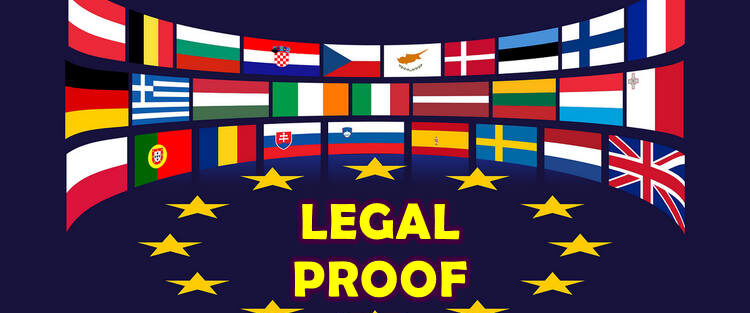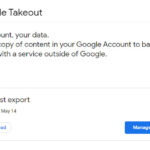In Europe, each country has developed its own legal framework to regulate the presentation of evidence in court. A crucial component of this process is the need to present certified copies and verify documents to ensure the certainty and reliability of evidence. Across the EU, the eIDAS Regulation (EU) No. 910/2014 gives legal effect to qualified electronic signatures and timestamps (presumption of integrity and of the accuracy of the date/time). This article explores national civil-procedure provisions that—together with eIDAS—support the use of certified, forensically acquired copies as legal evidence.
Spain
In Spain, the Ley de Enjuiciamiento Civil (LEC) — particularly Article 326 — establishes that copies without authenticity will not retain the value of a public document or legally admissible evidence in court. This means that without verified authenticity, a copy does not have the value of a public document and cannot be considered as legally admissible evidence. Qualified electronic signatures and timestamps (as per eIDAS) help satisfy authenticity and integrity requirements.
Italy
In Italy, the Civil Code and the Code of Civil Procedure contain provisions similar to the Spanish ones. An authentic copy, forensic acquisition of websites or web pages, will have the evidentiary effect referred to in Article 2712 of the Civil Code (reproductions of facts by mechanical/electronic means, subject to proof of accuracy and integrity). When sealed with a qualified electronic timestamp and digital signature compliant with eIDAS, the copy benefits from a strong presumption of authenticity and date-certain.
France
In France, the Code civil – Article 1379 provides that “La copie fiable a la même force probante que l’original”, i.e., a reliable copy has the same probative value as the original, provided that integrity over time is guaranteed by an approved process. Digitally signed, time-stamped certified copies are therefore admissible when the conditions of integrity and fidelity are met.
Germany
In Germany, the rules governing the submission of electronic evidence (including certified copies of web pages) are mainly set out in the Zivilprozessordnung (ZPO).
-
§ 371a ZPO – Beweiskraft elektronischer Dokumente: sets the evidentiary value of electronic documents that meet authenticity/integrity requirements (e.g., qualified electronic signatures/timestamps).
These provisions allow the court to accept electronic reproductions while reserving the power to request further authentication where appropriate.
United Kingdom
In the United Kingdom, the Civil Evidence Act 1995 regulates the use of documents as evidence in civil proceedings. Section 8 (evidence of statements in documents) and related provisions allow a copy to be admitted as evidence if shown to be a true and reliable copy of the original. Although not specific to web pages, the rule is generally applied to electronic documents, including online content, provided their authenticity and chain of custody are demonstrated. (Post-Brexit, UK courts continue to apply these principles.)
Poland
In Poland, the rules for electronic evidence (including web pages) are in the Code of Civil Procedure (Kodeks postępowania cywilnego).
-
Article 243¹ KPC – Dowód z dokumentu elektronicznego permits the use of electronic documents as evidence when authenticity can be proven (e.g., digital signature/timestamp, or other methods recognized by law).
Courts then assess probative value in light of integrity, origin and reliability.
Greece
In Greece, the submission of evidence in civil proceedings, including electronic documents, is regulated by the Greek Code of Civil Procedure (Κώδικας Πολιτικής Δικονομίας).
-
Article 444 KPC – documents and electronic records as evidence, including those digitally certified, may be accepted if authenticity and integrity are proven.
-
Article 457 KPC – authentication of documents; courts may require a certified copy where the reliability of a submitted copy is in doubt.
Netherlands
In the Netherlands, the Wetboek van Burgerlijke Rechtsvordering (Rv), especially Articles 152–161 on evidence, follows the principle of “vrije bewijsleer” (free evaluation of evidence): courts may admit electronic reproductions provided authenticity and integrity are shown. Certified copies sealed with a qualified electronic signature and timestamp (per eIDAS) benefit from a strong presumption of reliability and date-certainty.
Belgium
Belgian law on proof was modernized with Book 8 “La preuve/Het bewijs” of the Civil Code, which places electronic documents on the same footing as writings when identity and integrity are guaranteed. Belgium implements eIDAS (notably via the Act of 21 July 2016 on trust services), so qualified e-signatures and timestamps carry full legal effect; certified electronic copies are therefore admissible where conditions are met.
Austria
Under the Austrian Zivilprozessordnung (ZPO) rules on documentary evidence (e.g., §§ 292 ff.), electronic documents can serve as proof if their origin and unaltered state are established. Austria implements eIDAS through the Signatur- und Vertrauensdienstegesetz (SVG), which recognizes qualified signatures and timestamps—supporting the evidentiary use of digitally certified copies.
Ireland
Irish courts accept copies where reliability is demonstrated. The Civil Evidence Act 1992 and the Electronic Commerce Act 2000 allow electronic documents to be admitted, provided their authenticity can be shown. In practice, digitally signed and time-stamped certified copies strengthen admissibility and probative weight.
Finland
The Code of Judicial Procedure (Oikeudenkäymiskaari), Chapter 17 on evidence allows courts to admit electronic documents and evaluate their weight freely. With eIDAS in force, Finnish practice recognizes qualified electronic signatures and timestamps as strong indicators of authenticity and integrity for certified copies.
Endnotes
The need to submit verified authentic copies as legal evidence is a common principle across Europe, even with variations between jurisdictions. EU-level rules (eIDAS) provide a common baseline for the legal effect of qualified electronic signatures and timestamps, while national civil-procedure codes govern how courts assess authenticity, integrity and probative force. Forensically acquired, digitally signed and time-stamped certified copies help maintain high evidentiary standards and protect the integrity of proceedings.




